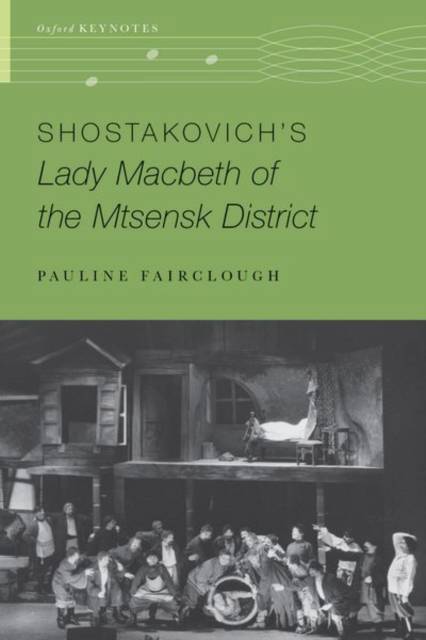
- Afhalen na 1 uur in een winkel met voorraad
- Gratis thuislevering in België vanaf € 30
- Ruim aanbod met 7 miljoen producten
- Afhalen na 1 uur in een winkel met voorraad
- Gratis thuislevering in België vanaf € 30
- Ruim aanbod met 7 miljoen producten
Zoeken
Shostakovich's Lady Macbeth of the Mtsensk District
Pauline Fairclough
€ 30,95
+ 61 punten
Uitvoering
Omschrijving
Shostakovich's lurid opera of sex, violence, and murder, Lady Macbeth of Mtsensk, is famous for being banned by personal decree of Joseph Stalin in 1936. Dramatically revived by Shostakovich's close friend, the cellist and Soviet émigré Mstislav Rostropovich in 1979, Lady Macbeth is now an international hit. In the first-ever study of this beloved but still-controversial opera, Pauline Fairclough asks whether we have become so distracted by its traumatic reception history that we overlook what is truly shocking about it: namely, Lady Macbeth's frank portrayal of sexual violence against women. Arguing that Shostakovich himself vacillated over how consensual its central sex scene should be, she grounds the opera's presentation of women, sexuality, and sexual violence in both real-life events and culture of early Soviet Russia. In a challenge to the still-potent Cold War Western assumption that only the banned original was faithful to Shostakovich's true creative impulse, Fairclough asks that we take another look at the composer's revision of the 1950s, Katerina Izmailova, which cut the sex scene altogether. In questioning the assertion - repeated even today - that Shostakovich simply "sanitized" Lady Macbeth for puritanical Soviet censors, she invites us to take the older composer at his word and consider whether, in fact, his revised opera solves the intractable dramaturgical problems that had caused him to make so many revisions to the sex scene when the opera was first staged in 1934.
Specificaties
Betrokkenen
- Auteur(s):
- Uitgeverij:
Inhoud
- Aantal bladzijden:
- 160
- Taal:
- Engels
- Reeks:
Eigenschappen
- Productcode (EAN):
- 9780197534946
- Verschijningsdatum:
- 17/09/2025
- Uitvoering:
- Paperback
- Formaat:
- Trade paperback (VS)
- Afmetingen:
- 140 mm x 201 mm
- Gewicht:
- 158 g

Alleen bij Standaard Boekhandel
+ 61 punten op je klantenkaart van Standaard Boekhandel
Beoordelingen
We publiceren alleen reviews die voldoen aan de voorwaarden voor reviews. Bekijk onze voorwaarden voor reviews.







